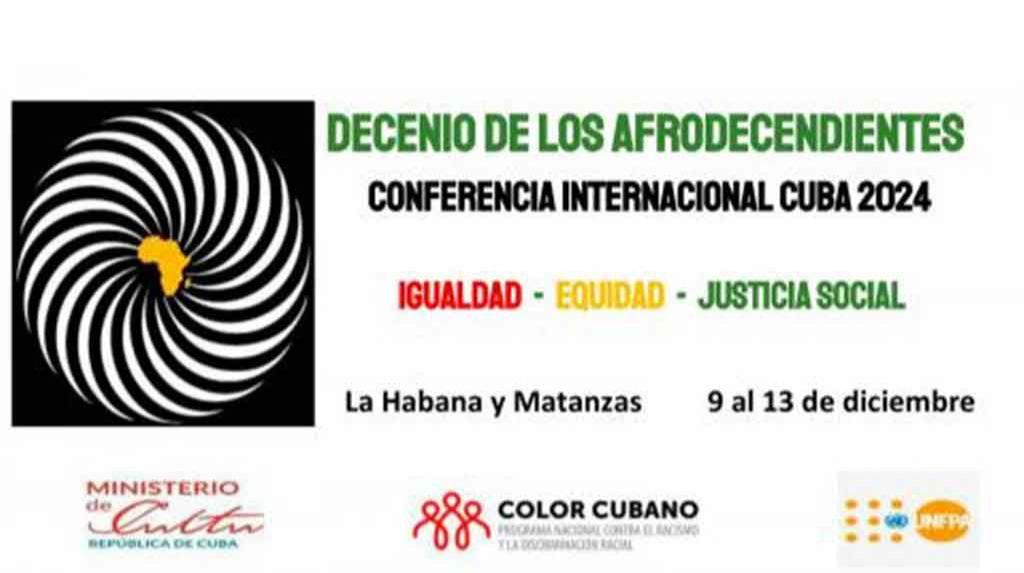The International Conference on the Decade of People of African Descent, organized by Cuba, will be held from today until the 13th in the provinces of Havana and Matanzas, to showcase the island’s commitment and efforts in the fight against racism and discrimination based on skin color, ethnicity, nationality, or territorial origin.
The event will bring together a hundred participants from over 20 countries, who will share their experiences and best practices in combating racism and discrimination, and discuss issues related to inclusion, integration, and respect for diversity.
The conference will consist of plenary sessions and work in commissions, which will take place at the Havana Convention Center on the 9th and 10th. These sessions will provide a platform for analysis, reflection, and debate through panel discussions and special interventions.
The participants will discuss the achievements, challenges, and aspirations of the National Program Against Racism and Racial Discrimination, as well as other approaches to this issue on the international stage.
They will also visit communities, historical sites, educational institutions, and cultural landmarks of interest.
The program of the conference includes live artistic performances by musical groups specializing in rumba, jazz, son, and chamber music.
On the 12th, the delegates will visit the city of Matanzas, where they will tour the Rebel Slave Museum, the Enslaved People Museum, and the communities of La Marina, Pueblo Nuevo, and Alturas de Simpsom. They will also visit the Quintín Bandera Cultural Center, the headquarters of the Cuban Color Social Observatory, the Yoruba Cultural Association of Cuba, and the House of Africa Museum.
The conference is dedicated to the closing of the Decade of People of African Descent, which was proclaimed by the United Nations from January 1, 2015, to December 31, 2024.
It also commemorates the 50th anniversary of the presence of the United Nations Population Fund in Cuba and the memory of the outstanding journalist, art critic, and intellectual Pedro de la Hoz, who received the José Martí National Journalism Award.


